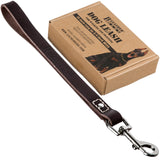Making sure to get your dog spayed or neutered is one of the most important parts of being a dog owner. Yes, the idea of bringing more puppies into the world is cute, however, it’s extremely problematic. In addition to keeping the dog population down, spaying/neutering your dog is beneficial to the overall well-being of both your dog and the dog community in general.
Dog Over-Population Problem
This might seem like a weird concept to discuss. I mean, who wouldn’t want more dogs? But, our world is already vastly overpopulated with them. This has led to a homeless dog population that continues to grow each and every day. Now, we don’t have exact number of homeless dogs in the world, however, according to the ASPCA, “Approximately 6.5 million companion animals enter U.S. animal shelters nationwide every year. Of those, approximately 3.3 million are dogs”.
In other words, 3.3 million dogs are living in bad enough conditions that being in a shelter is a good alternative. Shelters try to give these dogs the best chance possible, but they just don’t have enough resources. Most likely, these dogs will end up being put down. There just aren’t enough good homes for all the dogs in our world. Most of the dogs brought into shelters are strays that were part of an unplanned litter: a result of an unneutered dog getting out of the house and finding a mate. Usually, these puppies will either stay on the streets struggling to survive or they end up in the shelter waiting to get killed for housing purposes.
In the end, by refusing to spay or neuter your dog, you heighten the chance of an unplanned litter being brought into this already dog over-populated world. Most likely, you’re just adding to an already ever-worsening problem.
Medical Benefits
Besides keeping the dog population down, choosing to spay or neuter your dog can have several health benefits:
Medical Benefits of Neutering a Dog
- Neutering a dog removes the risk of testicular cancer
- Prevents the prostate gland from becoming enlarged
- Reduces the risk of perianal tumors
Medical Benefits of Spaying a Dog
- Spaying helps your dog avoid uterine infections and breast cancer. Breast cancer is fatal 50% of the time for female dogs. Getting them spayed before the first heat cycle offers the best protection against these health issues.
- In addition to stopping uterine infections, it prevents uterine cancer as well.
- Major medical problems can manifest during the birthing process. By spaying them, you obviously will avoid these health issues.
- Spaying eliminates the bloody discharge of female dogs in heat.
Behavioral Benefits
Along with certain medical benefits, choosing to spay or neuter your dog can have great effects on your dog’s behavior:
Behavioral Benefits of Neutering a Dog
- Your neutered dog is less likely to roam free and try to find a mate. Meaning they’ll be less inclined to escape the backyard.
- Will be less likely to hump or mount other dogs.
- A neutered dog is less likely to mark their territory inside your home.
- Will be less aggressive
- Makes them more docile and dog-friendly
Behavioral Benefits of Spaying a Dog
- Will be less aggressive
- Can become more dog-friendly
- Won’t attract male dogs from a great distance because they’re in heat
Disproving the Myths About Spaying and Neutering
People tend to have misconceptions about the overall process of both these procedures. Many have accepted some blatant lies about the effects and other parts of these life-saving operations:
Spaying/ Neutering Your Dog Will Not Make Them Overweight
People tend to think spaying/neutering your dog will make them become overweight. This just isn’t the case. If your dog does become overweight after getting spayed or neutered, it’s not because of the operation. It’s because you aren’t giving them the proper exercise and diet.
However, your dog will need an adjustment to their exercise and diet to counteract the loss of certain hormones (estradiol and testosterone) and a change in others (eptin and insulin). These changes mean a spayed or neutered dog will have a slower metabolism and an increased appetite. Therefore, a spayed or neutered dog needs fewer calories and more exercise to keep them healthy.
In the end, keeping your dog from becoming overweight really depends on you understanding the changes a spayed or neutered dog goes through rather than the operation itself.
Spaying/ Neutering Isn’t Expensive or Cost Inefficient
The first thing people bring up when talking about spaying/neutering their dog is the cost. Everyone assumes it’s extremely expensive. However, if you look hard enough, there are some very low-cost spay or neuter options available. In fact, the ASPCA has a whole a webpage dedicated to helping you find a low-cost spay/neuter operation near your home. And, there’s probably a shelter or rescue sponsored event that offers free spay or neuter operations around your neighborhood.
In any circumstance, the cost of the operation is going to be cheaper than taking care of a whole unplanned litter. It’s truly the cost-effective option.
A Spade or Neutered Dog Won’t be a Worse Guard Dog
Since spaying/neutering your dog might make your dog less aggressive, people think it will make them less protective of their home. However, it’s a dog’s natural instinct to protect the people and places they love. The protective part of their personality doesn’t come from their sex hormones. Therefore, a dog shouldn’t become more or less protective because of these procedures.
When to Spay or Neuter Your Dog
Now, you might be wondering what’s the right time to spay or neuter your dog: it becomes an option at the age of eight weeks for dogs. Although, some vets recommend you wait until your dog becomes at least six months old. Typically, dogs get these operations done between the ages of six and nine months.
However, this doesn’t mean adult dogs can’t get spayed or neutered. Although, the operations do have a higher risk of post-operation complications, especially, for dogs who are overweight or have health problems. Regardless, it’s still important to explore spaying/ neutering your dog for both the betterment of your dog and the whole dog community.
Don’t be part of the problem and let an unplanned litter happen on your watch. Be apart of the solution and make sure your dog gets a spay or neuter operation.
What do you think? Is your approach more strict or not?













